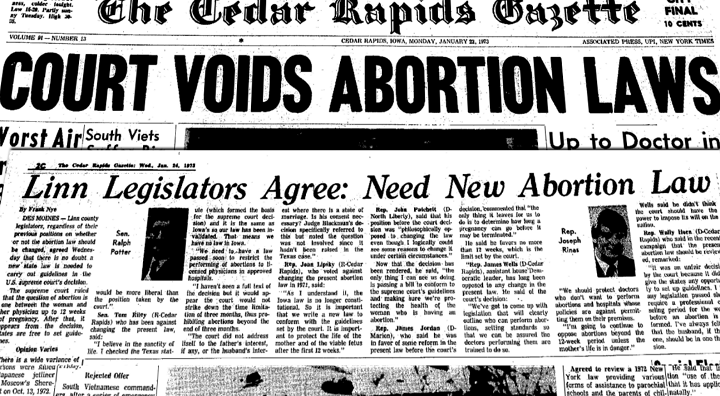In recent years, the landmark Supreme Court case Roe v. Wade has been a subject of significant controversy, debate, and, most importantly, news. The decision, which legalized abortion in the United States in 1973, has been a focal point in the ongoing battle over reproductive rights. With various legal challenges and political developments in the mix, this article aims to provide a comprehensive update on the latest news surrounding Roe v. Wade.
Understanding Roe v. Wade
The Landmark Decision
Roe v. Wade, decided by the United States Supreme Court on January 22, 1973, established a woman’s constitutional right to choose to have an abortion. The ruling struck down state laws that banned or severely restricted access to abortion, citing a woman’s right to privacy under the Due Process Clause of the Fourteenth Amendment.
Ongoing Relevance
Despite its age, Roe v. Wade remains a contentious and vital legal precedent. The decision has been the basis for numerous legal battles, political campaigns, and policy changes over the decades.
Recent Developments

Supreme Court Nominations
One of the most significant factors affecting the future of Roe v. Wade is the composition of the U.S. Supreme Court. The appointment of new justices and their judicial philosophies have a direct impact on the court’s decisions regarding reproductive rights.
Texas SB 8
In 2021, Texas passed Senate Bill 8 (SB 8), also known as the “Texas Heartbeat Act.” This law bans most abortions as early as six weeks into pregnancy. It is unique in that it allows private citizens to sue anyone who performs or aids and abets an abortion in violation of the law.
Mississippi’s 15-Week Ban
In December 2021, the Supreme Court heard the case of Dobbs v. Jackson Women’s Health Organization, which challenges a Mississippi law that bans most abortions after 15 weeks of pregnancy. The decision in this case is expected to have significant implications for the fate of Roe v. Wade.
Proposed Federal Legislation
Efforts to protect reproductive rights at the federal level have gained momentum in response to state-level restrictions. Bills such as the Women’s Health Protection Act aim to establish a nationwide standard for reproductive rights and access to abortion.
Public Opinion and Activism
Divided Public Opinion
The issue of abortion remains polarizing, with public opinion split on whether Roe v. Wade should be upheld or overturned. Understanding the public’s views is crucial to comprehending the ongoing debate.
Grassroots Activism
Pro-choice and pro-life activists continue to engage in grassroots efforts to shape the future of abortion laws. Protests, advocacy groups, and public awareness campaigns play a significant role in this ongoing struggle.
Possible Outcomes
Overturning Roe v. Wade
If the Supreme Court were to overturn Roe v. Wade, the legality of abortion would no longer be protected at the federal level. Instead, it would be left up to individual states to regulate, potentially leading to a patchwork of laws across the country.
Upholding Roe v. Wade
Should the Supreme Court reaffirm Roe v. Wade in the Dobbs case or similar challenges, the decision will continue to serve as the legal foundation for abortion rights in the United States. However, it may not put an end to the ongoing debate.
The ongoing developments and controversies surrounding Roe v. Wade demonstrate the enduring significance of this landmark Supreme Court decision. As the legal landscape continues to shift, public opinion remains divided, and activists on both sides of the debate mobilize, the future of reproductive rights in the United States remains uncertain. The final outcome could have far-reaching consequences for women’s healthcare, constitutional law, and the nation as a whole. Stay tuned for updates on this ever-evolving legal and social issue.


